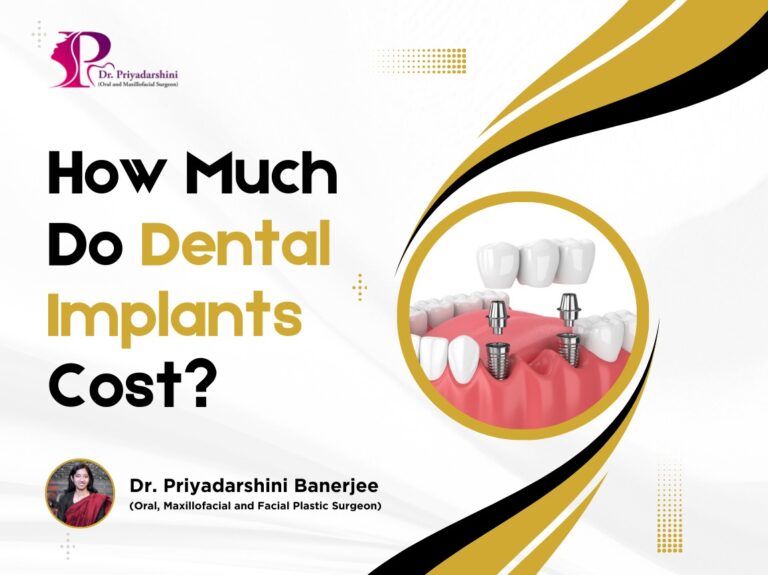The Complete Guide to Dental Implant Costs: What You Need to Know

Dental implants have become a revolutionary solution for restoring missing teeth, providing a long-term, functional, and natural-looking option for patients. Whether you’re looking to replace a single tooth or several, dental implants offer durability and aesthetic appeal. However, like any medical procedure, dental implants come with their own set of costs that can vary greatly depending on a variety of factors. If you’ve been considering dental implants, it’s important to understand what goes into the pricing to make an informed decision.
In this blog, we will explore the various elements of dental implant costs, so you know what to expect when you decide to take the leap towards a healthier, more confident smile.
What Are Dental Implants?
Before diving into the costs, let’s first define what dental implants are. A dental implant is a titanium post that is surgically placed into the jawbone, serving as an artificial root for a missing tooth. After the implant integrates with the bone (a process called osseointegration), a crown or bridge is placed on top of it, creating a permanent, functional replacement tooth.
Dental implants are often preferred over other tooth replacement options like dentures or bridges because they offer:
- Long-lasting results: Dental implants can last 25 years or more if properly cared for.
- Natural look and feel: They mimic natural teeth, both in appearance and function.
- Improved speech and chewing ability: Unlike dentures, implants won’t slip or affect your speech.
- Bone preservation: Implants stimulate the jawbone, preventing bone loss, which often occurs after losing a tooth.
Factors That Affect the Cost of Dental Implants
The cost of dental implants can vary widely depending on several factors. While the average price range for a dental implant is between ₹30,000 to ₹1,50,000 per tooth in India, it’s important to understand what influences these prices.
1. Type of Implant Used
Not all dental implants are the same. There are different types of implants, and some may be more expensive than others. The two most common types are:
- Endosteal implants: These are the most common type of implants and are inserted directly into the jawbone.
- Subperiosteal implants: These are placed on top of the jawbone but under the gum tissue, often used for patients who don’t have enough bone height for endosteal implants.
The type of implant you choose will affect the price, as endosteal implants tend to be more cost-effective.
2. Quality of Materials
The material used in the implant is a significant factor in the cost. Titanium, which is biocompatible and integrates well with the bone, is commonly used for dental implants. However, some high-end implants may use zirconia, a ceramic material known for its aesthetic appeal, which can be more expensive.
- Titanium implants are generally more affordable.
- Zirconia implants are typically priced higher due to their aesthetic advantages and biocompatibility.
3. The Complexity of the Procedure
For some patients, getting a dental implant is a straightforward procedure. However, for others, it can be more complex due to factors such as:
- Bone quality and density: If your jawbone isn’t thick enough to support an implant, bone grafting may be necessary to build it up. This adds to the overall cost.
- Number of implants required: The more implants you need, the higher the total cost. Some people require full-mouth restoration with several implants, which will naturally increase the price.
4. Location of the Dental Clinic
Dental implant costs can vary depending on where the procedure is performed. Clinics located in metropolitan areas or areas with a higher cost of living tend to charge more for dental implants than those in smaller towns or rural areas. Additionally, well-established dental practices with experienced professionals may have higher fees.
5. The Experience and Expertise of the Dentist
The cost of dental implants can also be influenced by the dentist’s experience and reputation. Highly experienced oral surgeons or prosthodontists who specialize in dental implants will typically charge more for their expertise. While the price may be higher, many patients prefer to go to an experienced professional to ensure the best results.
6. Additional Costs: X-rays, Follow-up Appointments, and Medications
Apart from the cost of the implant itself, there are other costs involved in the process. These may include:
- Consultation and X-rays: Before the procedure, a consultation with the dentist and diagnostic X-rays are required to determine the condition of your jawbone and overall oral health.
- Anesthesia: The procedure may require local or general anesthesia, which adds to the cost.
- Follow-up visits: You’ll need follow-up appointments to ensure proper healing and to place the crown or bridge.
Medications: Post-procedure medications for pain management or antibiotics will also contribute to the total cost.
Average Cost of Dental Implants in India
As mentioned earlier, the cost of dental implants in India typically ranges from ₹30,000 to ₹1,50,000 per tooth. This range can vary depending on the factors discussed above.
For example:
- Basic implant surgery with a titanium post may cost around ₹30,000 to ₹50,000 per tooth.
- Implants with bone grafting or sinus lift procedures could raise the cost to ₹75,000 to ₹1,50,000 per tooth.
- Full-mouth restoration or multiple implants can range from ₹2,50,000 to ₹5,00,000 or more.
Are Dental Implants Worth the Cost?
While the upfront cost of dental implants may seem steep compared to other tooth replacement options, they offer a variety of long-term benefits that can make them a worthwhile investment:
- Longevity: Implants can last for decades, often outlasting other options like dentures or bridges, which need frequent replacements or repairs.
- Improved quality of life: Dental implants allow you to eat, speak, and smile with confidence, without worrying about your teeth slipping or shifting.
- Better oral health: Implants help preserve jawbone health, unlike other tooth replacement options that can lead to bone loss.
Financing and Insurance Options
Dental implants are often not covered by insurance, but many dental clinics offer financing options to make the procedure more affordable. Some options include:
- Payment plans: Some clinics offer flexible payment plans, allowing you to pay in installments over time.
- Dental insurance: While dental insurance typically doesn’t cover the full cost of implants, it may cover a portion of the procedure.
- Health savings accounts (HSAs): If you have an HSA, you may be able to use it to pay for dental implants.
Conclusion
Dental implants are a life-changing option for people looking to restore their smile and regain full functionality. While the cost of dental implants can be significant, understanding the factors that contribute to the price can help you make an informed decision about whether they’re right for you. Remember that dental implants are a long-term investment in your oral health, and with proper care, they can last for decades, providing a lasting solution for missing teeth.
If you’re considering dental implants, it’s essential to consult with a qualified dentist or oral surgeon who can evaluate your specific needs and provide you with an accurate cost estimate.



